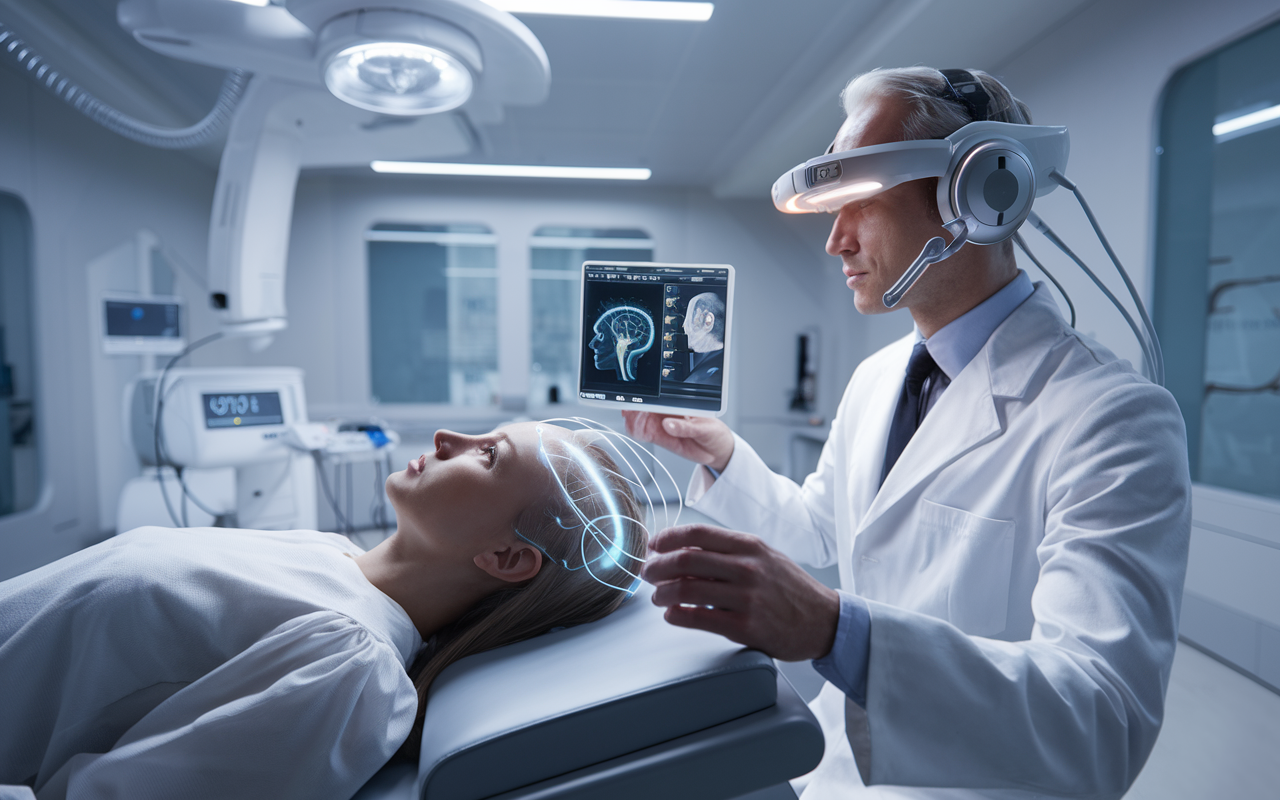Exploring Wearable Neurotech: A New Frontier in Health? 🧠✨
As our world leans more towards the integration of technology in our everyday lives, wearable neurotechnology is emerging as a fascinating and potentially life-changing sector in the healthcare landscape. From wearable devices that help with mental health to chronic pain management, wearable neurotech could revolutionize how we address and treat various psychological and physiological conditions.
What is Wearable Neurotech? 🤔
Wearable neurotech refers to devices designed to non-invasively interact with the brain, delivering treatment through brain stimulation from outside the body. Unlike traditional neurotechnology, which often involves surgical implants, wearable devices offer a painless alternative by applying stimulation through the skin and skull.
Recent innovations have opened up a range of applications, including treating depression, anxiety, insomnia, and even certain metabolic disorders like Type II diabetes. This sector is set to thrive, catering to users seeking alternatives to pharmaceuticals that often come with side effects. 💊🚫
The Promising Case of Flow Neuroscience 🌊
One notable example of wearable neurotech is the Flow device, which employs transcranial direct current stimulation (tDCS) to alleviate symptoms associated with depression. Users like Alex, who suffered from low mood and adverse effects from medications, report significant improvements in their mental health after using the device for daily treatments. 🏃♂️💡 Alex described their experience as feeling a mild sensation, akin to 'little ants biting at your forehead,' rather than the distress often associated with traditional treatments.
Dr. Camilla Nord from Cambridge University explains how these devices can change brain activity by altering electrical signals, providing a therapeutic effect without the risks tied to longer-term pharmaceutical use. While the safety of such devices remains under investigation, the mild stimulation levels are viewed as low-risk for short-term use. 🩺
Entering a New Market: Challenges Ahead ⚠️
While the potential of wearable neurotech is immense, a fragmented regulatory environment presents challenges for startups trying to bring their innovations to market. In the U.S., the 2019 FDA regulations tightened the approval process, distinguishing devices intended for mental health from those targeting insomnia or anxiety, making it more complicated for startups to achieve the necessary market entry.
The UK’s NHS, however, is shifting gears by beginning to pilot some wearable neurotech devices, such as Flow, paving the way for wider acceptance in healthcare systems. But as Erik Rehn, CEO of Flow, articulates, the jump from direct-to-consumer sales to reimbursement within healthcare systems is fraught with bureaucratic challenges. 🏥
The Market's Future: What's Next? 🔮
Looking ahead, we see startups like Neurable and Alphabeats venturing into the consumer neurotech space, promising to track and enhance brain performance. These devices appeal to consumers but lack the rigorous regulatory scrutiny that medical devices face. As stigma around mental health decreases and technological capabilities improve, consumer neurotech could gain a foothold, offering tools for mental hygiene and performance enhancement in daily life.
The journey for wearable neurotech is lengthy, full of regulatory labyrinths and medical skepticism, but the promise is undeniable. As devices gain traction and acceptance, they could streamline early interventions and offer pathways to healthier lives.
Conclusion 💡
Wearable neurotechnology represents a burgeoning field with the possibility of enhancing mental health treatment and addressing chronic conditions in user-friendly, non-invasive ways. The anticipation and commitment of both consumers and innovators to this exciting technology could eventually rewrite how we approach mental health and overall well-being. 🌟
What do you think about the rise of wearable neurotech? Are you optimistic about its potential? Share your thoughts below! 💬

More Stories
Meta’s AR Ambitions and AI Safety: Insights from the Equity Podcast
Insight Partners Data Breach: A Wake-Up Call for Cybersecurity Awareness
Lovable’s Ascendancy: Anton Osika at TechCrunch Disrupt 2025